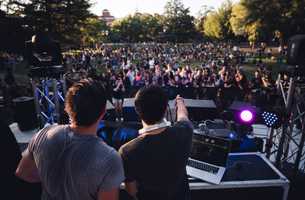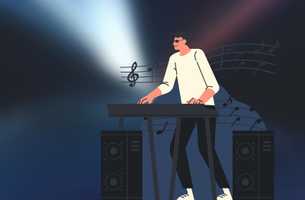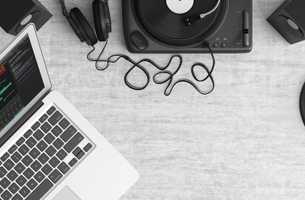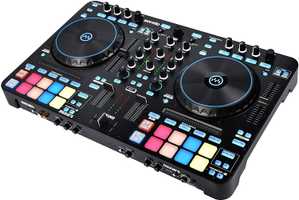Mix It Up Beginner DJ Tips for a Smooth Start
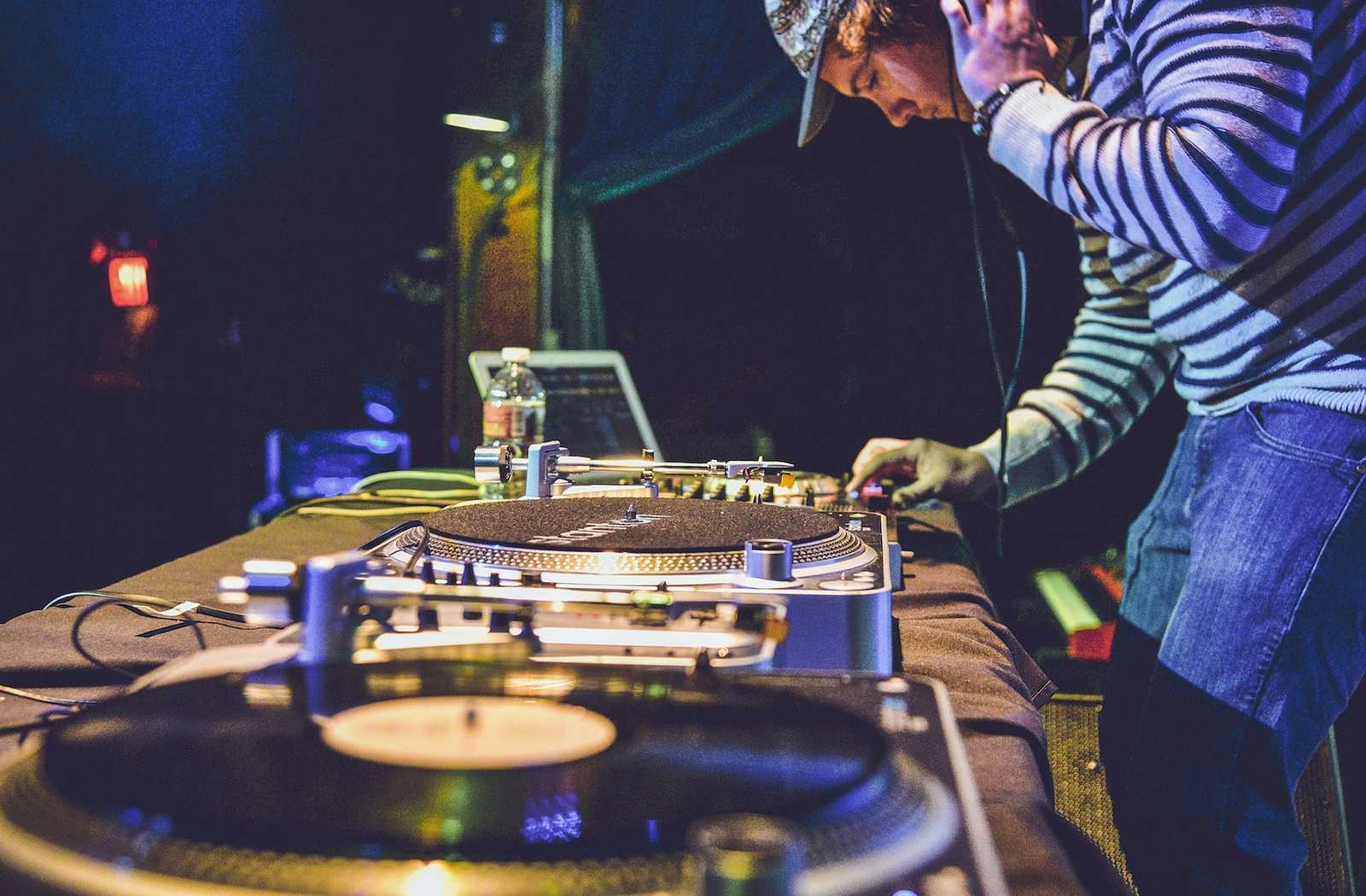
DJ tips for beginners
Introduction
DJing is a great way to make money, meet new people and have fun. It's also a lot of work; you need to learn how to mix, learn about new music and beatmatch manually (or use an automated beatmatching program). Here are some tips for beginner DJs:
Start by learning the basics of mixing
In order to get started, you need to learn the basics of mixing. Mixing is the process of combining audio tracks into one cohesive mix.
The tracks are combined by using crossfading and EQ. This can be done manually or automatically using software like Logic Pro X or Ableton Live Suite Lite (which is free).
The first thing you need to know is what mixing actually is:
- Mixing involves combining multiple tracks into one complete track (or "master"). The end result should sound good enough that it doesn't matter if you're using only one stereo channel or two mono channels for each song; if all the parts work together well - then your music will sound great!
Mixing is a creative process that requires patience and practice. You can't just press play on your CD player and expect to hear something that sounds good. It takes experience and experimentation to get it right.
Invest in good equipment
- Get a good mixer.
- Get a good DJ controller with a jog wheel. This can be as simple or complex as you like, but it's important to invest in something that will allow you to control your music as well as mix it up at the same time.
- Get good headphones and speakers for use on stage or in the studio (or both!). Some DJs prefer headphones over speakers because they don't have to worry about damaging their hearing from excessive loudness levels but if your DJing style involves playing tracks that have been mixed down from other sources (like CDs), then having an external sound system may be better suited for this purpose than wearing headphones alone
Learn how to beatmatch manually
Beatmatching is the process of syncing two tracks together. You can do it manually by using a turntable or CD player, but there are many software programs that will automatically do it for you. Some examples include Traktor and Serato.
There are many ways to beat-match, but my favorite is the manual method. It’s quick and easy, and it will help you get a feel for how the process works.
Start by making sure your tracks have similar BPMs. If they don’t, then use a BPM counter to adjust one or both of them until they match up.
Once your tracks are beat-matched, you’re ready to mix. The first step is to determine what type of mix you want to create. In this article, I’ll be using the phrase “mixing by feel”, which means that you don’t have any visual cues (such as waveforms) to guide your mixing decisions.
Experiment with different genres
Experimenting with different genres is a great way to learn more about the mixing process. Each genre has its own unique style and sound, which can be used as a guide when you're trying to mix two songs that don't quite fit together.
The more you know about different genres, the better you will be at mixing them. For example, if one song uses lots of basses while another uses lots of trebles.
The bass will overpower everything else in your mix! To prevent this from happening, use EQ settings on your speakers (or headphones) so that both sounds come through clearly without being overpowered by each other's frequencies.
Collaborate with other DJs
Collaborating with other DJs can be a wonderful way to learn from the best, and it's also an excellent way to meet and collaborate with other musicians.
You may find yourself working with a DJ who is much more advanced than you are at this point in your career, but if he or she is willing to share some of their knowledge, then this could be beneficial for both of your careers!
-Take a DJing class. There are many online and in-person classes available for DJs to take, and these can be an excellent way to learn some of the basics.
You may want to talk with other DJs who have taken these courses and see what they thought about them, as well as how much they helped them in their careers.
Stay up to date on new music
Stay up to date on new music. The best DJs are constantly learning and expanding their repertoire, so it's important for them to stay educated about what's going on in the world of DJing.
Don't just focus on one genre; play everything! There are plenty of subgenres within each genre that can add some great variation to your sets (e.g., house, techno). It’s also helpful to try new things.
If you’re not sure what kind of music works best with your style, ask someone who knows more than you do! Even if they don't have any idea either it could be worth learning something new.
So that no one else gets bored with hearing it over and over again unless they choose differently themselves later on down the line when they come back around again someday soon enough.
Because life goes by fast sometimes which means we've got less time left before needing something different out there somewhere else too because now there aren't any more places left where those things might live anymore except maybe under beds or inside closets but still somehow managed survive even though nobody knows why yet.
Your equipment should make you happy
Your equipment should make you happy. If you're using a piece of gear and it doesn't excite you, that's not good. It might be time to upgrade or buy something new.
When I first started DJing, my setup consisted of two pairs of headphones, one turntable (which played records), one mixer (which controlled all the other things), and a laptop with Serato software on it that's pretty much all I needed! Nowadays my setup is much more complex:
There are speakers for each side of the room; two turntables; an effects unit; an amplifier/speakers; a mixing board with dual XLR inputs for mic inputs for live shows...and so on!
But back then when I was just getting started this wasn't important because all these pieces just made me feel comfortable playing at home with friends who were already DJs but didn't have as many options available yet.
Either way, they could still listen without any problems since everything worked well together without affecting their hearing too much even though we didn't have anything fancy like today's technology makes possible nowadays where everything becomes obsolete very quickly compared to what used to exist decades ago when vinyl records came out back then instead.
Master the basics
If you're new to DJing, it's important to understand the basics. Without a solid foundation in music theory and mixing techniques, your skills will be limited.
Mastering these basic skills will help you create better music and get more out of your mixers. Here are some tips:
- Learn how to beat match songs that aren't on the same tempo (how fast or slow they go)
- Learn how to use EQ (equalization) on both ends of the spectrum—if one track has too much bass while another track has too little bass—you can fix this with EQ!
If you are going to use a DJ controller or mixer, it is important that you learn how to beat match manually first. This will allow you to get a feel for it so when you start using the software features they will be easier to understand is a type of audio processor that allows you to adjust the frequency response of your tracks.
This means that you are able to cut certain frequencies and boost others as you see fit. You can also use an EQ to remove unwanted noise from a track or simply make it sound better to learn how to use effects, such as reverb (a type of echo) and delay (a repeating sound).
Learn to beat match
There are many ways to learn how to beat-match two songs together. You can:
- learn by watching a DJ mix and learning how they do it manually;
- use audio mixing software like Serum or Massive (you will need some knowledge of these programs);
- use a DJ controller with built-in effects like the Traktor Kontrol S4 MK2; or
- buy a mixer that has this feature built-in (like the Pioneer DDJ-SX2).
Learn how to mix two songs together without them sounding like they're fighting each other for dominance. Learn how to use effects, such as delay and reverb, to add dimension to your mixes.
Don't be afraid to play with the EQ
EQ is a powerful tool that can help you shape the way your tracks sound. It’s also a great way to make your tracks stand out and get noticed by fans of music production.
If you have never used an EQ, then this article will show you how easy it is for beginners to get started with this amazing tool. As long as there are no technical problems with your computer or software, then getting started with EQ shouldn't be too hard!
EQ is a tool that allows you to change the frequency balance of your tracks. It’s like a filter for your music, allowing you to remove unwanted sounds and boost certain frequencies so that your music sounds better than ever before.
Enhance your beats
In this section, we'll cover how to enhance your beats with effects. The most important thing is to understand the difference between an effect and a plugin: an effect is something that you apply to a sound in order to alter its quality and make it fit your track better.
A plugin is simply a piece of software (usually free) that does this for you—there's no need for any technical knowledge or experience with music production!
There are lots of great free effects out there, like reverb (to make your music sound bigger), delay (to add width), and flanger/phaser (for movement). If you're looking for more options than just these three though, there are plenty more available online at sites like Sweetwater Music or Native Instruments' Kontakt Player site.
Book gigs
The importance of booking gigs cannot be understated. If you're serious about being a DJ, you have to get in front of people and perform for them. It doesn't matter if it's your friends or strangers.
The goal is to make people happy through music, so make sure that your setlist has songs they'll like and danceable energy that will keep them on the dance floor as long as possible.
Booking gigs isn't just about getting paid it's also about learning how professional DJs do things like staying organized and making sure their equipment works properly before going on stage at a club or event (and not just in preparation).
Practice, practice, practice
- Practice, practice, and more practice.
- Find a friend who's also new to DJing. If you're in a small town or city with a large enough population of DJs and producers (or if you know someone who is), it's possible that there could be several other people who share some of the same interests.
- You can all meet up and play at each other's houses on Friday nights I've seen this happen in my own neighborhood!
- It's fun because there are so many different ways to approach learning how to DJ: by yourself; with friends; against an audience; as part of an event involving other artists/bands/etc.; etc.
You definitely want to start out small and build on what you've learned
You definitely want to start out small and build on what you've learned. Don't be afraid to start with something simple, like mixing tracks together or learning how the different parts of your DJ setup work.
This will help you learn what works, and what doesn't work, and make sure everything is working as it should before moving on to more advanced techniques.
You can always expand your DJing skills by buying new equipment as needed but don’t spend too much money on equipment if it isn’t necessary for your first few gigs!
Investing in good gear is key when starting out as a DJ because it will allow you to do more with less effort later on down the road (and cost less). Even if that means getting used headphones instead of expensive speakers/earphones/headphones…it's worth it!
Conclusion
The most important thing is to remember that DJing isn't a science. You can't just follow a set of rules and expect it to work out for you.
The best way to improve as a DJ is through experimentation and practice. If you want to learn more about how DJs reach their goals, check out our guide on how they do it!

